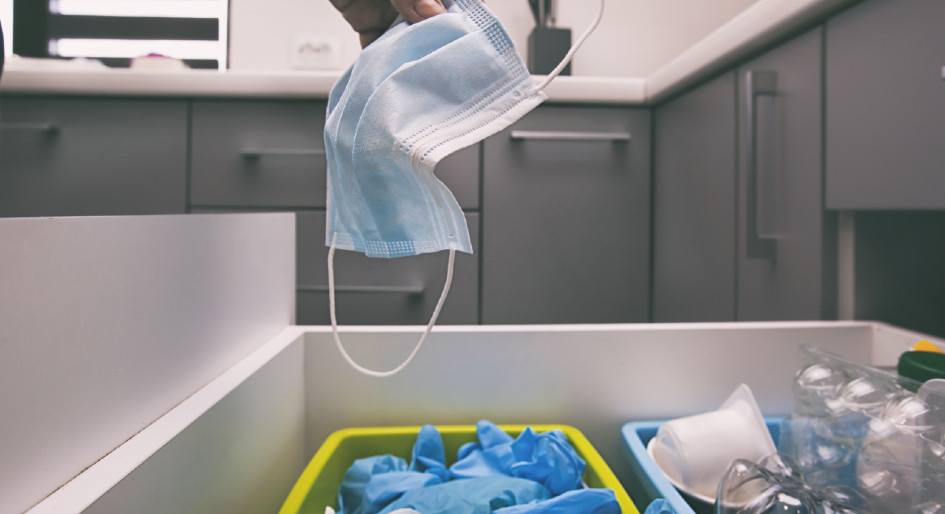Toronto’s University Health Network (UHN) and health care facilities in British Columbia’s lower mainland are piloting an effort to curb the volume of personal protective equipment (PPE) and medical single-use plastics (mSUP) discarded to landfill. The initiative, sponsored by the Canadian Coalition for Green Health Care, is one of five projects recently receiving federal funding to advance approaches to reduce plastic waste and recapture it for new purposes.
“Ultimately, we hope to demonstrate that applying a circular economy lens to purchasing decisions in hospitals can both save money and our planet,” explains Neil Ritchie, executive director of the Green Health Care Coalition.
To do so, project partners and advisors will explore options to reduce, reuse and recycle PPE and mSUP before disposal. They will study the feasibility of, and develop protocol for, reclaiming various materials that have previously been viewed as single-use items. That also involves working with waste services providers to identify required processing capacity at recycling facilities, as well as required collection and storage procedures within health care facilities, and measures for safe handling at all points of the circular journey.
“We will conduct important first-person research that can inform the sector on best practices for PPE waste management. It will also help develop operational expertise among the various stakeholders engaged in the acquisition, use/re-use, recycling and disposal of PPEs and selected mSUPs,” Ritchie affirms.
All interested parties are invited to learn more about the project’s scope during a webinar scheduled for May 11. The federal government has allocated about $250,000 to underwrite the project. The four other grant recipients are:
- Conference Board of Canada, awarded $390,000 to conduct research and develop a convening platform to inform Canada’s transition to a circular plastics economy;
- Scout Environmental, granted $300,000 to develop a network that will be used to facilitate industry collaboration to reduce plastic waste;
- Ontario Ministry of the Environment, Conservation and Parks, receiving $250,000 to improve the management of compostable products and support the development of new standards for bioplastics; and
- Bluenose Coastal Action Foundation, allocated $100,000 to study the link between single-use plastic pollution and microplastic accumulation, and to develop strategies for preventing plastic pollution in Atlantic Canada.









